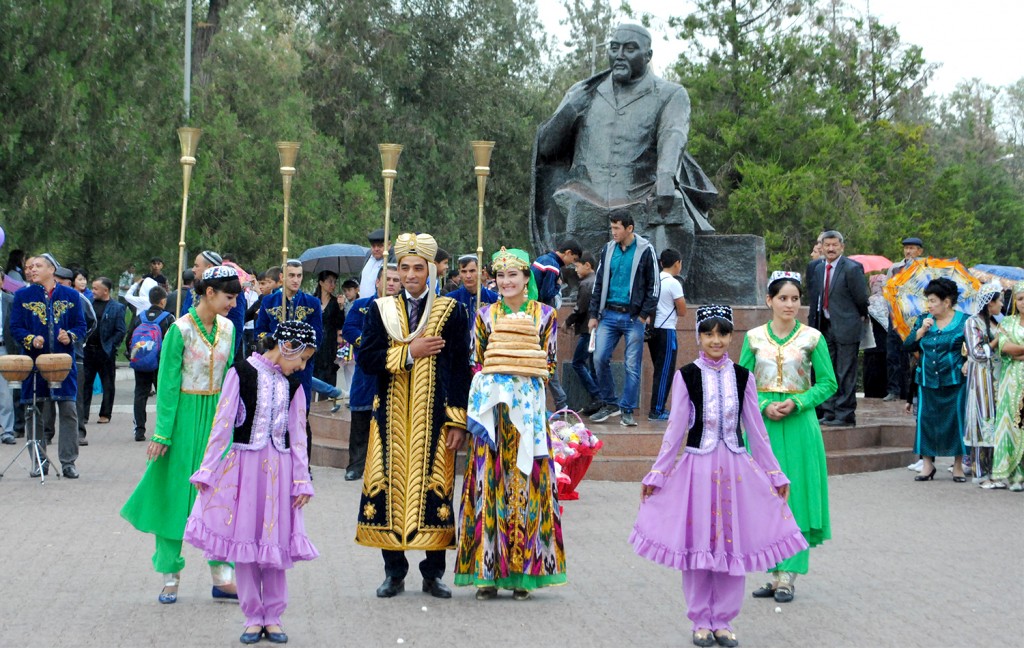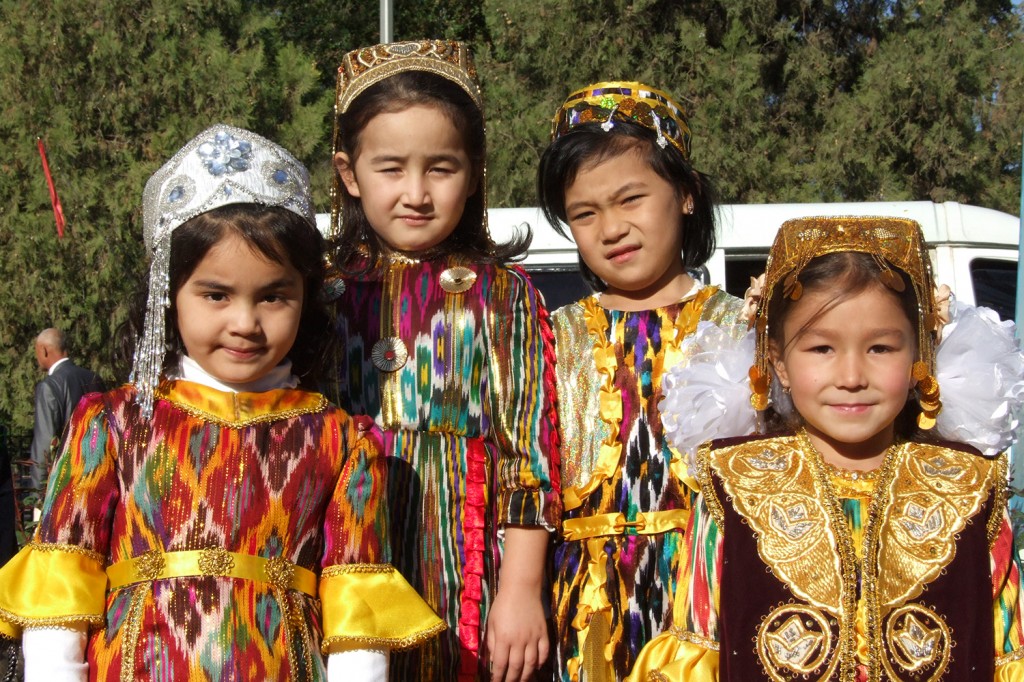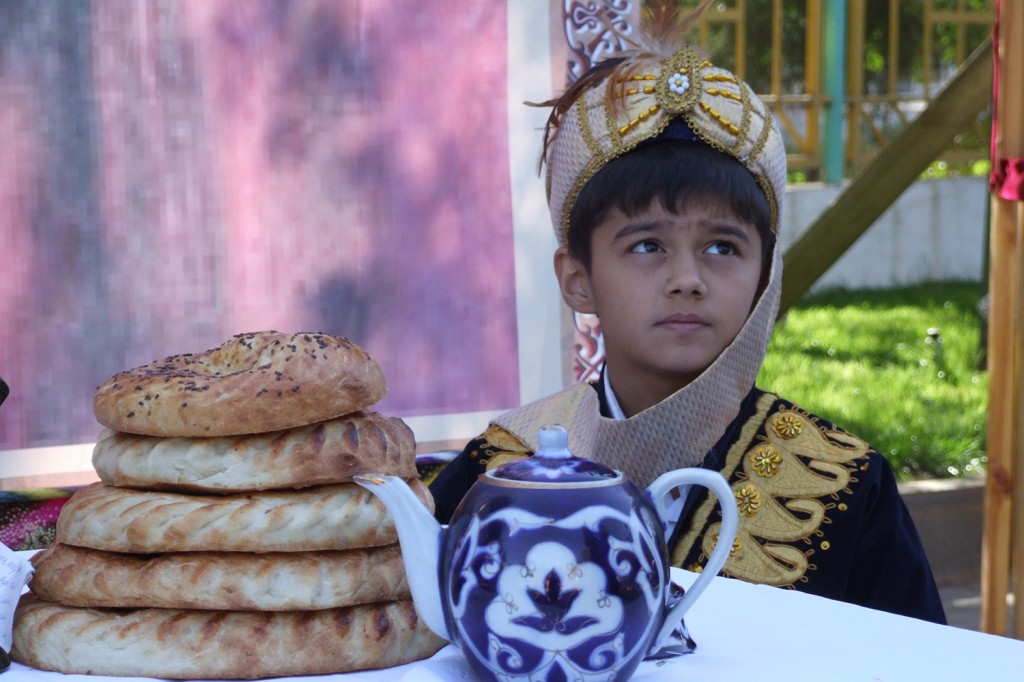Centuries ago Kazakh and Uzbek khanates belonged to the same dynasties. Both countries historically shared borders and Tashkent, the capital of Uzbekistan, was, at some point, a key city in the Kazakh Khanate. In addition, some of the modern southern Kazakhstan territories were formerly part of the Bukhara Emirate and the Kokand Khanate. Today, there are over half a million Uzbeks living in Kazakhstan, mostly in the South Kazakhstan region, according to Ikram Khashimzhanov, chairman of the Regional Uzbek Cultural Centre.
“Since Kazakhstan gained its independence Nursultan Nazarbayev had one goal: to use the country’s multiethnic community to advantage and to steer away from the political and economic deadlock and set the country on the bright path of development. On March 1, 1995, under President Nursultan Nazarbayev’s initiative, a unique public institution, the Assembly of the People of Kazakhstan (APK), was established. Considering that there are more than 130 ethnic groups living in Kazakhstan, just in the South Kazakhstan region there are almost half a million ethnic Uzbeks. [With such] numbers, of course, Uzbeks play a vital role in the region, contributing to the development, economy and society. Twelve years ago during the opening of the Uzbek Drama Theatre, Nazarbayev noted that Uzbeks and Kazakhs are brotherly nations, as those Uzbeks living on the territory of Kazakhstan have integrated well into the Kazakhstan society,” Khashimzhanov told The Astana Times in an exclusive interview.
“The APK, as Europeans refer to it, is a mini version of the United Nations. It’s a unique institution that has kept all nations under one umbrella in peace, harmony, tolerance and interethnic accord. Our community is glad to have found a home in this country, where our destiny once placed us. We are the third largest ethnic group in the country and the second largest population in the South Kazakhstan region,” he continued.
The Uzbek National Association was established almost 25 years ago. Next year the association is preparing to celebrate the 25-year anniversary and, according to the chairman, “throughout these years we have done a lot of work to organise events both in Kazakhstan and beyond the country’s borders to demonstrate our culture, customs and traditions.”
In 2007, a Kazakhstan delegation visited Seoul, South Korea, where Khashimzhanov, on behalf of the APK, shared the beauty of his culture with numerous South Korean spectators. “Later we visited Vienna, Austria and participated in the Integration through Education conference hosted by the Organisation for Security and Cooperation in Europe (OSCE).”
“Today, we are the only Uzbek cultural centre that still works with the OSCE in the field of education,” he said.
The High Commissioner on National Minorities of the OSCE Astrid Thors always pays a visit to the South Kazakhstan region whenever their delegation is in Kazakhstan, Khashimzhanov says. According to him, since 1995 our school graduates from Kazakhstan had serious difficulties with enrolling in Uzbek universities. There were days when the Uzbek capital Tashkent used to recruit some of the best professionals in the region, but since gaining independence these opportunities were not available to Kazakhstan’s ethnic Uzbek citizens.
“One of the reasons, for instance, is they use the Latin alphabet; we use Cyrillic. Thanks to the OSCE we are using a bilingual system of education. There are about 100,000 Uzbek school students in the South Kazakhstan region; there are 143 schools [here] and 50 of them are completely Uzbek and the rest are mixed. This year there will be over 4,000 students graduating from schools. So they will have to speak their native tongue, Uzbek, the state language, Kazakh, and Russian to be able to integrate fully into society. With the help of the OSCE our kids are also learning English. I think the more languages one speaks, the more intellectual one becomes and more understanding towards other cultures,” the leader of the Uzbek community explained.
Uzbeks in Kazakhstan are actively learning the state language in collaboration with other higher education institutions in Kazakhstan, the chairman stressed. “We have the Kazakh language skills contests every year in April. Whoever gets the first places wins grants to enroll in universities – that is, they will study for free. I would like to thank the mass media that helped us hold these contests. Also, I especially thank the South Kazakhstan Pedagogical Institute, the Akhmed Yassawi Kazakh-Turkish University, the Mukhtar Auezov State University, Dostyk University, the Shymkent University, the Saparbayev Institute, Pedagogical and Engineering University and also the Russian-Kazakh University in Astana, which have been a part of this for the last two years. In a span of eight years I gave out certificates for over 60 million tenge (US$323,284).”
Kazakhs and Uzbeks are brotherly nations, the chairman repeated to conclude the interview, stressing that there are too many evidences of such friendly relations that date back in history. The community is preparing to celebrate the 550th anniversary of the Kazakh Khanate and the 20th anniversary of the APK, with celebrations throughout the country on May 15-16.





